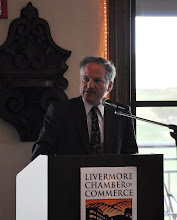clearance, n
1. The action or process of removing or getting rid of something
2. Official authorization for something to proceed or take place.
3. Clear space allowed for a thing to move past or under another.
You probably think of clearance the way i used to, when I was told to turn off my personal device, or when I was installing some bookshelves. Or when a bookstore files for Capter 11.
Clearance has taken on much more importance for me since I joined the executive branch. It's the process for getting approval to release something in writing to the public: it could be a regulation, to be published in the Federal Register, explaining what we think Congress meant and how we're going to implement it, some sub-regulatory guidance explaining what we meant by the regulation, or it could be just a letter.
Clearance involves some list of people being given some amount of time to make comments on whatever I and my team have written. Some of the people on the list are up the chain of command, so that makes perfect sense. And the lawyers in the General Counsel's Office. And if it's a regulation, the Office of Management and Budget, part of the White House, that must approve all regulations.
Some of these reviewers are other people in the agency, some may be in other agencies. Many of them I've never heard of, and they've never heard of me; some likely know little to anything about the subject the're reviewing.
It's easy to chalk this up just to bureaucracy, and it's also easy to chafe at the delay it causes. But I have come to appreciate the fact that something I do might have an unexpected impact on something that others in the Federal government are doing, and that of course I know nothing about. So we understand why the process is needed. And when we can, we plan our work with a timeline that takes account of the additional time that will be needed. And the system works pretty well. Which doesn't mean we can't grumble a bit now and then.
Subscribe to:
Post Comments (Atom)


















No comments:
Post a Comment